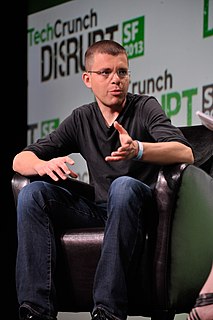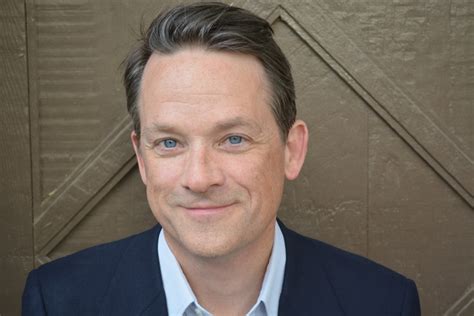A Quote by Errol Morris
I am profoundly skeptical about our abilities to predict the future in general, and human behavior in particular.
Quote Topics
Related Quotes
We spend our whole lives worrying about the future, planning for the future, trying to predict the future, as if figuring it out will cushion the blow. But the future is always changing. The future is the home of our deepest fears and wildest hopes. But one thing is certain when it finally reveals itself. The future is never the way we imagined it.
There is a great difference, whether the poet seeks the particular for the sake of the general or sees the general in the particular. From the former procedure there ensues allegory, in which the particular serves only as illustration, as example of the general. The latter procedure, however, is genuinely the nature of poetry; it expresses something particular, without thinking of the general or pointing to it.
I am sympathetic to the general form of Aristotle's view: the exercise of complex and more inclusive abilities is not anything in itself that is or necessarily should be valued over simple and less inclusive abilities. Rather, value depends on what the abilities are and the ends to which they are put.
The human brain is the only object in the known universe that can predict its own future and tell its on fortune. The fact that we can make disastrous decisions even as we foresee their consequences is the great, unsolved mystery of human behavior. When you hold your fate in your hands, why would you ever make a fist?
Rational behavior ... depends upon a ceaseless flow of data from the environment. It depends upon the power of the individual to predict, with at least a fair success, the outcome of his own actions. To do this, he must be able to predict how the environment will respond to his acts. Sanity, itself, thus hinges on man's ability to predict his immediate, personal future on the basis of information fed him by the environment.
We were required to predict a soldier's performance in officer training and in combat, but we did so by evaluating his behavior over one hour in an artificial situation. This was a perfect instance of a general rule that I call WYSIATI, "What you see is all there is." We had made up a story from the little we knew but had no way to allow for what we did not know about the individual's future, which was almost everything that would actually matter. When you know as little as we did, you should not make extreme predictions like "He will be a star."
In my work, I am not attempting to predict the future. I am only pointing out what is possible with the intelligent application and humane use of science and technology. This does not call for scientists to manage society. What I suggest is applying the methods of science to the social system for the benefit of human kind and the environment.
The human experience can almost be summed up in the observation that, whereas all decisions are of the past, all decisions are about the future. The image of the future, therefore, is the key to all choice-oriented behavior. The character and quality of the images of the future which prevail in a society is therefore the most important clue to its overall dynamics.






































